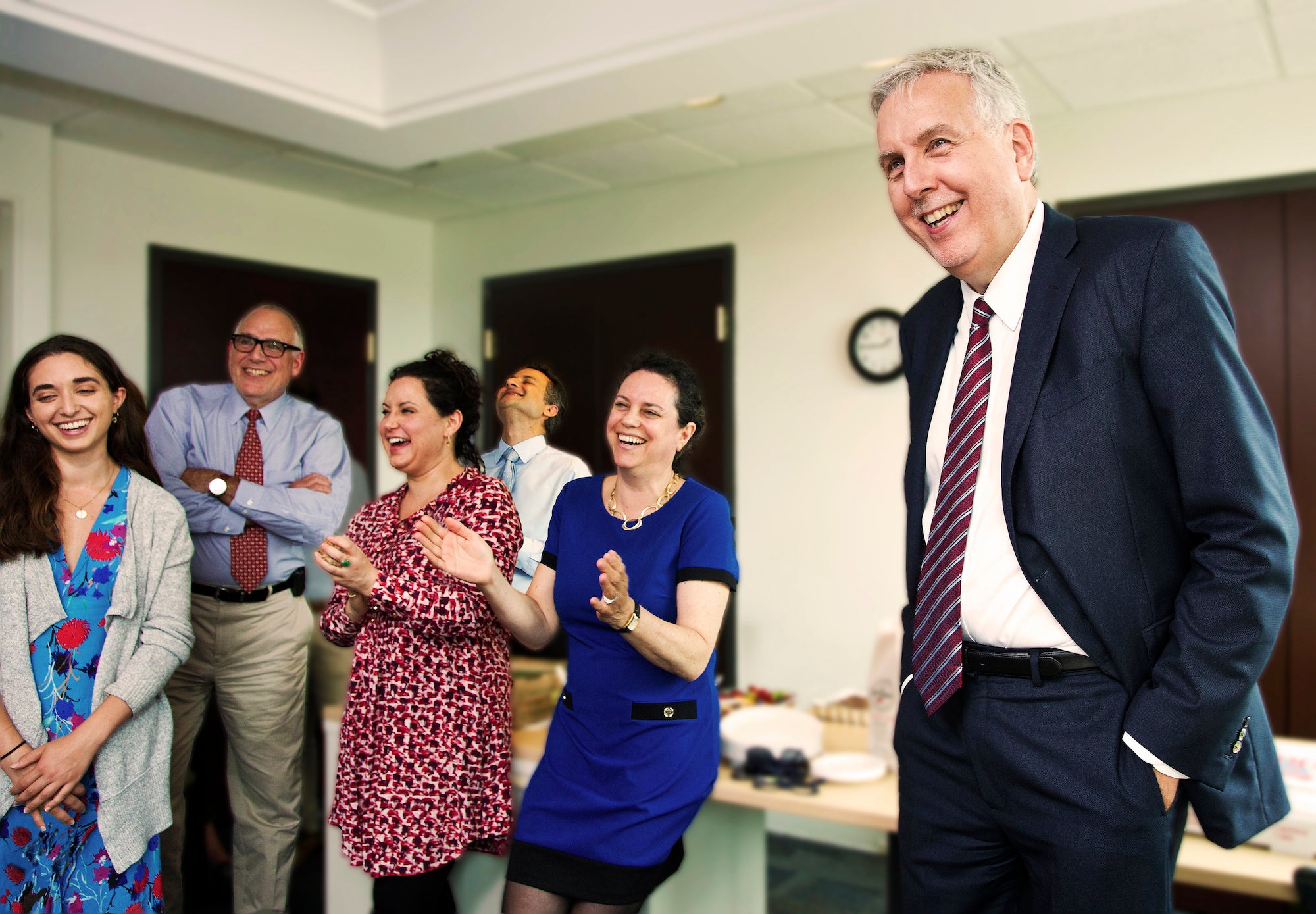News & Highlights
Topics: Care Delivery, Clinical & Translational Research, Five Questions, Health
Five Questions with Maurizio Fava
Our associate dean for clinical and translational research discusses his work treating depression and his thoughts on the impact of COVID-19 on healthcare delivery.

Maurizio Fava, MD, is an associate dean for clinical and translational research at Harvard Catalyst, Harvard Medical School Slater Family Professor of Psychiatry, and psychiatrist-in-chief at the Massachusetts General Hospital, where he is also director of the Mass General Research Institute and executive director of the Clinical Trials Network and Institute.
Is your department doing virtual patient visits because of COVID-19 and might these visits become a part of standard care?
COVID-19 has forced psychiatrists and psychologists to convert to telemedicine. We’re delivering almost the same volume of visits remotely as we were last year in person.
We’re a country of pioneers. The distress and challenge with COVID-19 brings the best out of us as innovators. Our neuro-psychologists, for example, are developing ways of doing neuro-psych testing virtually. It’s never been done before. We’re developing new ways of delivering group therapy through platforms that allow multiple people to see each other.
There was some use of telemedicine in psychology and psychiatry before. But now there’s a level of comfort that people are developing and positive feedback from patients, who would much rather see their doctor from the comfort of their homes, especially for frequent visits. I think it’s going to change the way we deliver care.
“Now there’s a level of comfort that people are developing and positive feedback from patients, who would much rather see their doctor from the comfort of their homes, especially for frequent visits. I think it’s going to change the way we deliver care.”
What’s been happening in the clinical research arena and how has Harvard Catalyst leadership been involved?
I think that the research that is COVID-19 focused is proceeding very rapidly. The disease-altering trials continue, for example, in oncology or ALS trials. But other clinical research will continue only if it can be done virtually.
Lee Nadler, MD, played a key role in helping put together the consortium with Bruce Walker, MD, director of the Ragon Institute of MGH, MIT, and Harvard, to launch an effort to learn more about COVID-19, the Massachusetts Consortium on Pathogen Readiness.
The ability to derive data from multiple academic institutions and to use SMART IRB, which Harvard Catalyst developed in partnership with other institutions, allows cooperation across more than 730 academic institutions. That is going to be critical to our understanding of the risk factors, protective factors, and determining who will have poor outcomes. With a disease like COVID-19, big data are really important.
You’re a global expert on depression and have headed numerous multisite trials of potential new therapies. How optimistic are you about finding more fast acting and precise treatments for patients with depression?
The standard anti-depressants work in only about 40 to 50% of patients. That’s why we need more effective and more rapid treatments. Last year the FDA approved esketamine, intranasally, for treatment-resistant depression. I think we’re going to see a number of new therapies aimed at more rapidly treating depression, and also more effectively than the standard anti-depressants.
“It’s important that we take care of ourselves. We need to try to take breaks from intensive stress, with relaxation, meditation, or mindfulness.”
Do you have advice for colleagues on the frontlines of COVID-19 care or anyone who is experiencing stress, anxiety, or difficulty coping?
First of all, if you find yourself dragging to get up in the morning, not looking forward to going to work, sleeping poorly, fatigued, down in the dumps, and having thoughts of death and dying, or suicide, you should seek help immediately. These are symptoms of depression. Don’t hesitate. Put the oxygen mask on yourself first. We know that depression can emerge in the context of high levels of stress.
With respect to preserving our own wellbeing, it’s important that we take care of ourselves. We need to try to take breaks from intensive stress, with relaxation, meditation, or mindfulness. It’s important that we recharge ourselves with sleep, good nutrition, and physical activity. When we recognize that our level of anxiety or stress is overwhelming, we should not hesitate to seek help.
Our Employee Assistance Program helps many of our healthcare workers with stress-related issues. When appropriate, they are referred for psychiatric and psychological services. Our department has deployed specialists who will focus specifically on COVID-related depression and help with resilience, stress management, and reduction of anxiety. We’ve put together a curated set of mental health resources with a particular emphasis on materials that will be of use to providers and those they serve.
Do you take your own advice? What helps you stay balanced?
I like to go for a walk with my wife. We both find it very relaxing to stroll together and talk. It’s really quality time.

